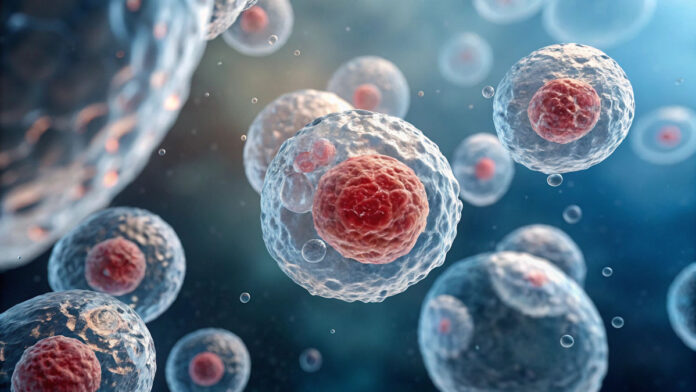A research team led by Yuejun Chen, founder of UniXell Biotech, has published an article titled “3D-Cultured Human Medium Spiny Neurons Achieve Functional Integration into Huntingtin Disease Mouse Neural Circuits and Improve Motor Deficits” in the Journal of Clinical Investigation.
Collaborating closely with the Xiong Lab at Fudan University, Shanghai, the study presents a method for generating authentic medium spiny neurons (MSNs) and provides comprehensive mechanistic insights that underpin cell-replacement therapy for Huntington’s disease.
Huntington’s disease (HD), an autosomal dominant neurodegenerative disorder, has a global prevalence of 5 to 10 cases per 100,000 people. The condition typically manifests in middle age and progresses relentlessly. Selective degeneration of MSNs in the striatum is the characteristic pathogenesis of the disease, which results in chorea, cognitive decline, and neuropsychiatric symptoms. While current treatments are limited to manage symptoms, the cell therapy aimed at replacing lost MSNs is deemed promising.
The research team established a novel, serum-free and xeno-free, chemically-defined 3D suspension culture system named “3D-default XFSC” to efficiently differentiate human pluripotent stem cells into lateral ganglionic eminence (LGE) neural progenitor cells, which can mature into MSNs—the specific neural cells lost in HD.
When transplanted into the striatum of HD model mice, the human LGE neural progenitor cells survived long-term and differentiated into D1-and D2-MSN subtypes, with axonal projections to their target regions. Single-cell transcriptomic analysis revealed high transcriptional similarity between the transplanted cells and corresponding human foetal brain neuron subtypes. Behavioural tests showed that transplanted cells significantly improved motor function in HD model mice.
“This study establishes a chemically-defined, 3D suspension platform that is both serum- and xenogeneic-free, enabling robust, scalable generation of authentic human MSN subtypes under full GMP compliance,” Chen said.
“Following transplantation, the cells successfully integrated into host neural circuits and markedly reversed motor deficits in Huntington’s disease models, providing a decisive proof-of-principle for UniXell’s cell-replacement therapy pipeline and for next-generation therapies against neurodegenerative disorders.”


